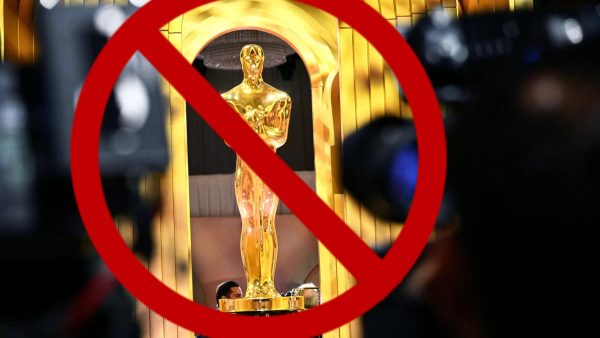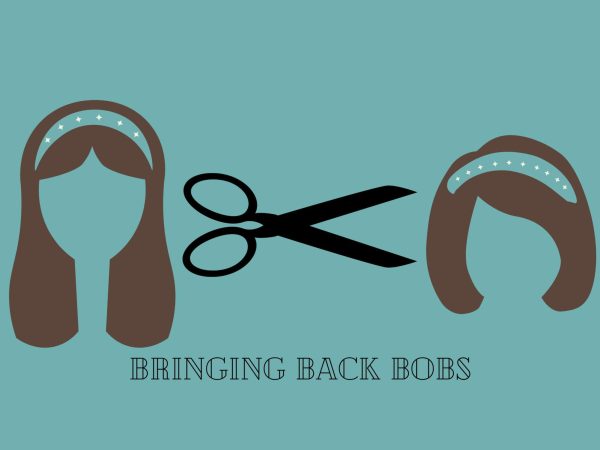Absolute power: the virtue in dictatorships
April 1, 2019
Anyone currently tuned in to the current political climate in the western hemisphere, specifically, the United States, likely finds a fair share of news articles detailing the current threat to democracy after the 2016 presidential election. A fairly common claim, it serves as an easy way to entice socially conscious readers into taking up the action, as well as inspire those not particularly interested in politics to consider partaking in activism. Both actions perfectly fine to undertake, but these articles tend to contain an interesting claim.
Most, if not all, of these articles, bring up authoritarian societies, either to highlight the superiority of Western democracy or (more commonly) to show how these systems failed in recent years. Now, keep in mind that democracy itself still lives and breathes: not just in democratic nations like America and France, but also in terms of participatory government, best exemplified by the Yellow Vest protests and Women’s March on Washington in both of the above-mentioned nations.
The interest arises with the dictatorship comparisons. History generally teaches that dictatorships harm society more than they help, with examples used to corroborate this including Adolf Hitler, Mao Zedong, and Joseph Stalin. All three of those individuals did truly terrible things while they ruled, undoubtedly; but with the current proliferation and influence of political strongmen, it raises an interesting question: do dictatorships truly deserve their current reputation as oppressive systems employed by humanity’s worst? Conversely, do democracies truly benefit society as much as Westerners claim they do?
One common praise levied towards democracy deals with its emphasis on the will of the people as essential for rule. The Declaration of Independence even states as much, with it saying “Governments are deriving their just powers from the consent of the governed”. In actuality, however, this notion lacks credence. Consent of the governed implies that government action can only occur with public approval, and society simply does not work that way.
If, for instance, an individual ended up arrested for illegal weed possession, they could not walk free by claiming they “don’t consent” to the laws. Regardless of the laws’ ethicality, the law remains that way. Likewise, a presidential candidate set for the inauguration will become president whether or not the public consents to it. There exists no rule to really opt out of the democratic government rule, no matter how unjust. Sounds awfully authoritarian, doesn’t it?
Another benefit of democracy espoused deals with how it promotes a sense of equal value among all citizens: more specifically, each and every vote taken during an election possesses equal weight in the final tally. Even more so than consent of the governed, this notion really holds no credence, mostly because of the Electoral College. First implemented in 1789, the controversial system sees American voters vote not for presidential candidates, but for presidential electors who choose between presidential candidates.
So not only do democracies not allow for direct election of leaders (thereby rendering the entire system pointless), but the votes for electors don’t even hold an equal value between states. Of the 538 electors nominated for choose a candidate across all 50 states (based on the nation’s 100 senators, 435 representatives, and 3 elector for D.C.), the six states with the most numerical clout-California, Florida, Illinois, Pennsylvania, New York, and Texas-all happen to find themselves in the top 10 most populous states in the U.S. So for Americans living in predominantly rural areas, they must live with the fact that their geographical region holds less influence in the affairs of our nation.
In contrast to the double-edged sword of democracy’s benefits, the critiques levied towards dictatorships often contain a silver lining. To start, the concept of centralized power. Common complaints against this notion argue no one person needs to possess that much power: as the adage says, absolute power corrupts absolutely. However, the truth in this statement only applies selectively.
Yes, an individual more skilled at military tactics than at diplomacy does not need to run the legislative and commerce sectors of their nation, as their skillset will likely limit their thinking to a single perspective; but if the dictator of a nation possessed a wealth of knowledge in areas like diplomacy, economics, social issues, and the like, then why shouldn’t they take control? This seems like a real, and viable, reason behind why so the most notable dictators rose to power, and with minimal opposition: the knowledge that their ruler possesses the skill to lead their nation into the future.
Even better, this concentration of power can serve to reduce political corruption, in a manner of speaking. Those favoring democracy may claim that the lack of any system of accountability creates a breeding ground for corruption (what with no one present to hold feet to the fire), but consider this: if no accounting body exists in a dictatorship, why bother with corrupt acts in the first place? Rulers only answer to themselves, so there exists nothing to rationalize to anyone.
Perhaps the biggest benefit to dictatorships regards their impact on crime and society as a whole. The concept of rule through fear goes hand in hand with dictatorships, as most dictators seek to incite fear to quell rebellions and minimize political dissent. Pro-democracy advocates often cite this as an abuse of power, but conveniently ignores instances the fearmongering, minor or otherwise, and civil rights abuses for democratic gains. Case in point: McCarthyism, where innocent Americans even suspected of sympathizing with the Soviets could risk losing their career.
Yes, dictatorships do the exact same and worse, but at least do so under honest pretenses, rather than lie and claim to act for the greater good. In select cases, fear mongering can create positive societal results. For instance, crime rates. Considering the heavily documented use of secret police in dictatorships, one could reason that dictators cannot handle any form of discourse. However, the use of secret police forces, though unethical, serves a psychological purpose: to let denizens know they can find themselves in prison at any time for any offense. In the Philippines, violent crime continues to see a decrease under the rule of dictator Rodrigo Duterte, with an overall crime rate decrease of just under 22% in the early months of 2017.
The heart of this debate comes down to one word: efficiency. For all the good that comes with the ability of choice and free participation, a democratic government simply cannot run itself as max potential. Consider the time taken to reach anything even resembling a decisive decision: in a democracy like America, one must navigate the veritable battlefield of initial public approval, Congressional approval, presidential approval, and then the maintenance of public support, all to ensure actions taken retain their effectiveness.
Nothing exemplifies this issue more than the amount of time taken to grant African-Americans equal rights under the law. While officially becoming law in July 1964 by President Johnson, the act truly came into fruition in June of the prior year and took so long to pass due to a Senate filibuster. Should that situation occur in a dictatorship (assuming the ruler sympathizes with such a cause), the nation’s leader could easily strongarm the proposal, and any other, into law.
At the end of news stories espousing the virtue in democracy, the writer will conclude by saying something to the effect of “democracy, for whatever its flaws, still deserves a chance” or “we will win the fight to protect democracy, as done before”. More often than not, those words contain genuine weight and emotion behind them and no posturing. Sadly, those kind sentiments can’t change the truth of democracy and its failings: the “will of the people” play no role in anything, the voices of certain people ring louder than others, and it truly takes too long for anything to happen within one. Dictatorships, for all the human rights abuses, can at least functionally run themselves and enact legislation. Considering the increasing division in democratic nations, the leaders of the “free world” must seriously consider scrapping this increasingly uneconomical system.
Happy April Fool’s, you fool!
XOXO
The Chant

















